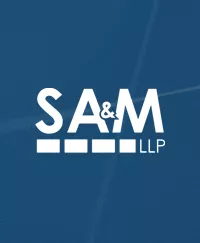Copyright Owners Must Obtain Registration Before Filing an Infringement Lawsuit
This week, the U.S. Supreme Court made clear what has been a gray area of copyright law – copyright owners must register their work with the U.S. Copyright Office before suing for copyright infringement. Previously, courts in some circuits (including the Ninth Circuit) permitted infringement suits to go forward before registration while applications were pending.
The Supreme Court's decision does not change the law that copyright registration is not required in order to acquire copyrights. An author of an original work acquires a copyright at the moment the work is created and fixed in a tangible medium. Copyrights provide the exclusive right to reproduce and distribute copies of the work, prepare derivative works, and publicly display, perform and broadcast the work. To enforce these rights, a copyright owner must register the copyright with the U.S. Copyright Office.
What does this mean for you? If you are in the business of creating original works entitled to copyright protection (e.g., software, videos, audio recordings, manuscripts, visual artwork, architecture), then you will need to register your copyrights with the U.S. Copyright Office in order to take legal action against infringers. Submitting your work to the Library of Congress or including a copyright notice on your work without filing a copyright application does not constitute registration. To register a copyright, you must complete an application form available at the U.S. Copyright Office website and submit the completed form, with the application fee and a copy of your work to the U.S. Copyright Office.
Why is this important? Copyright registration provides legal benefits beyond being a requirement for bringing a lawsuit. Creators who register their copyrights before infringement occurs or within three months after the first publication of their work are eligible to recover statutory damages without having to prove damages actually caused by the infringement. For example, the Recording Industry Association of America used statutory damages as a legal weapon to obtain multi-million dollar jury awards for illegally downloaded music. Prompt registration also enables copyright owners to recover their attorneys' fees and court costs.
-----------------------------

